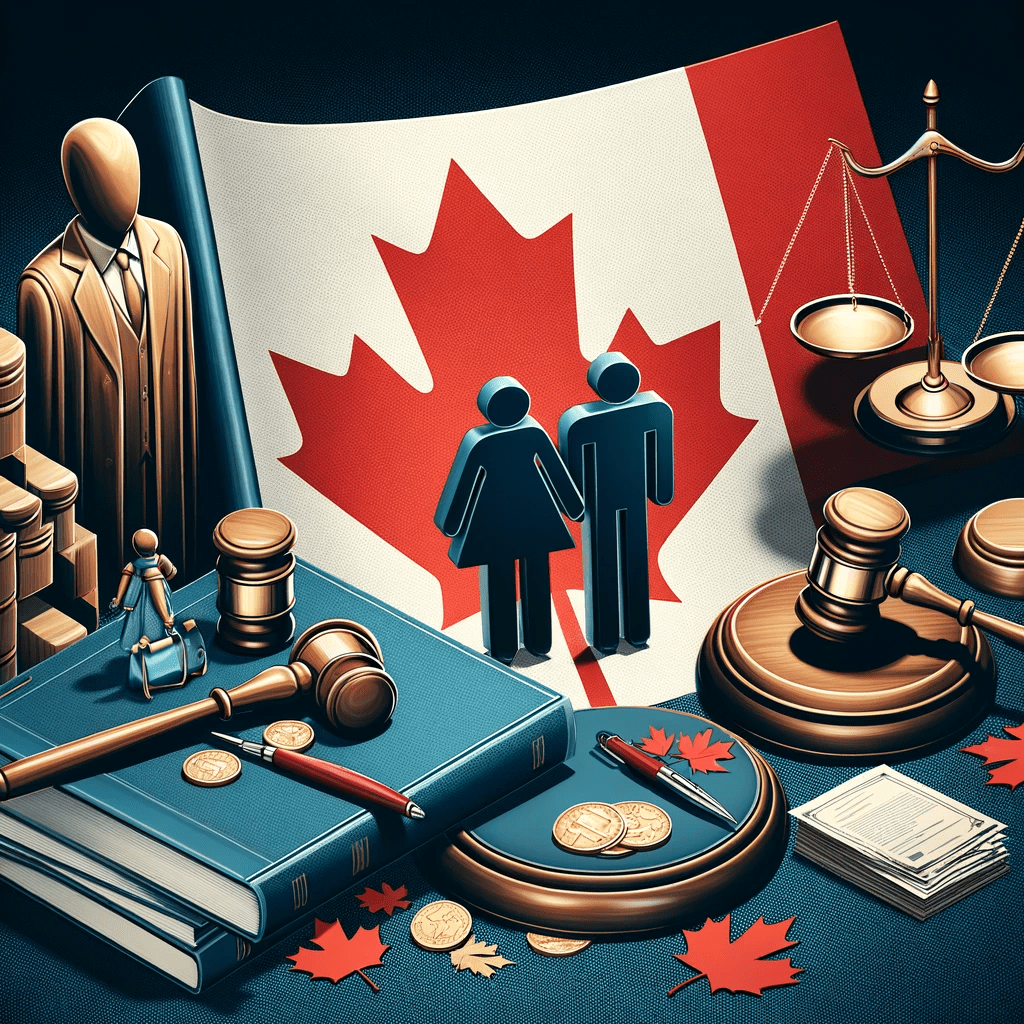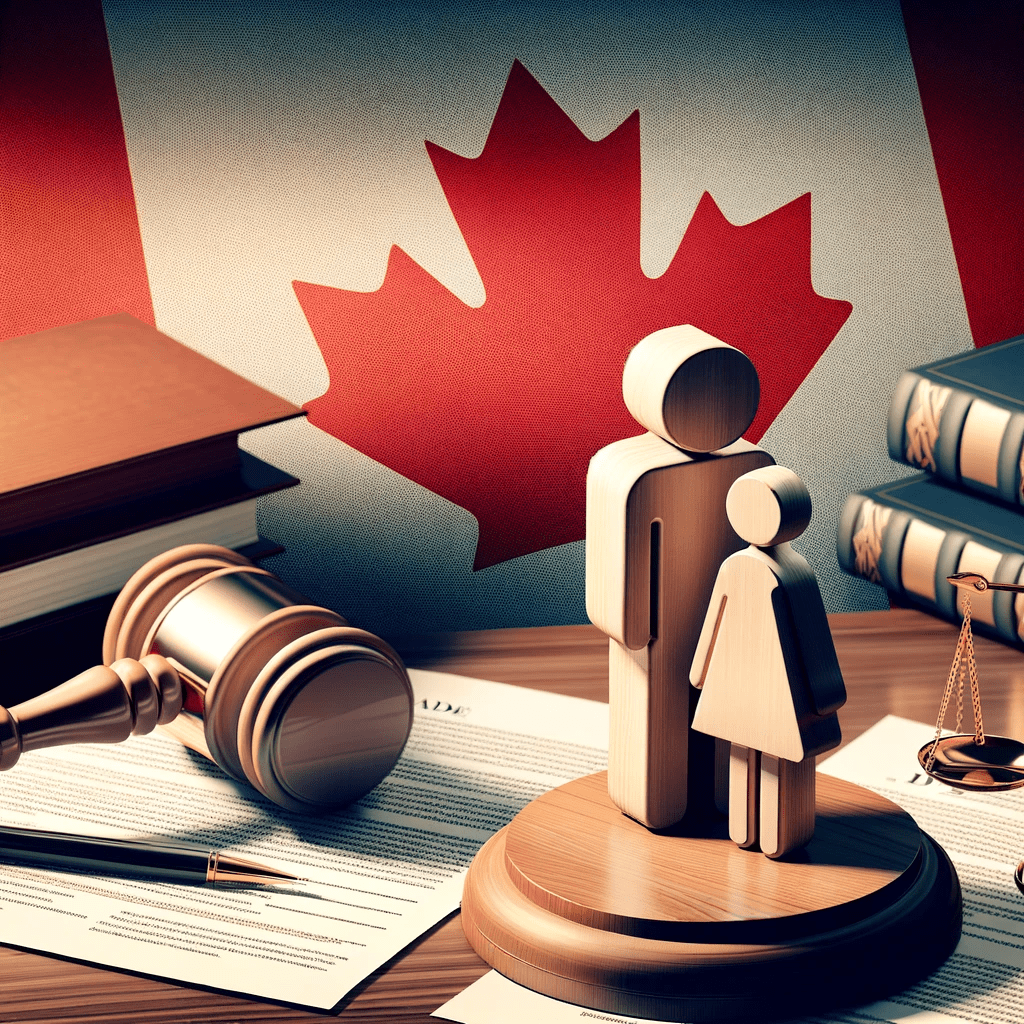Table of contents
- Understanding Family Law
- The Legal Framework
- When to Go to Court
- Mediation and Arbitration
- Common Family Law Problems
- Resolving Family Law Problems
- Family Law Agreements
- The Courts of British Columbia
- The Basic Law
- Parenting Children
- Child Support
- Spousal Support
- Dividing Family Property and Debt
- Separation and Divorce
- Information for Newcomers to Canada
- Pax Law can help you!
Understanding Family Law

Family law in British Columbia encompasses legal issues arising from the breakdown of romantic relationships. It addresses critical decisions about childcare, financial support, and property division after a relationship ends. This area of law is vital in outlining the formation and dissolution of legally significant family relationships.
Methods of Resolving Family Law Issues
Family law disputes can be settled in two primary ways:
- Mutual Agreement: Parties involved negotiate to reach a mutually acceptable solution.
- External Resolution: Involves court proceedings or arbitration when mutual agreement isn’t feasible.
Negotiation, mediation, and arbitration offer alternative paths to court litigation, each with distinct approaches to dispute resolution.
The Legal Framework
Governing Laws
The family law in British Columbia operates under two main statutes:
- Divorce Act: A federal law that predominantly deals with divorce-related matters.
- Family Law Act: A provincial law covering a broader spectrum of family law issues.
Both acts have overlapping yet distinct areas of application, catering to different family law scenarios.
When to Go to Court
Court Intervention
Court involvement is essential in certain scenarios, such as obtaining a divorce, addressing threats to personal safety or property, or dealing with potential child abduction. However, many disputes can be effectively resolved through negotiation or mediation.
Mediation and Arbitration
Role of Professionals
Mediators and arbitrators facilitate dispute resolution. They possess specialized training in negotiation and conflict resolution. It’s crucial to ensure their credentials, given the lack of stringent regulation in these professions.
Common Family Law Problems
Scope of Family Law
Family law caters to various relationship types, including same-sex and opposite-sex couples, whether married or unmarried. It addresses issues faced by parents and extends to complex family structures involving more than two adults.
Resolving Family Law Problems
Approaches to Resolution
Family law issues can be addressed through:
- Negotiation and Mediation: Involves parties working collaboratively to reach an agreement, often facilitated by mediators.
- Litigation and Arbitration: When consensus is unattainable, seeking a judicial or arbitral decision becomes necessary.
Family Law Agreements
Legal Contracts
These agreements, like cohabitation, marriage, and separation agreements, legally document the terms and conditions governing a relationship and its potential dissolution. They aim to prevent disputes and provide clarity and fairness to all parties involved.
The Courts of British Columbia
Court Hierarchy and Functions
The provincial court system comprises three levels, each with specific roles in family law:
- Provincial Court: Handles a range of family law matters but has limited jurisdiction regarding property issues.
- Supreme Court: Deals with all aspects of family law, including property division and appeals from the Provincial Court.
- Court of Appeal: The highest court, primarily concerned with reviewing decisions made by the Supreme Court.
The Basic Law
Legislation and Guidelines
The Divorce Act and Family Law Act form the legal backbone of family law in British Columbia. The Child Support Guidelines play a crucial role in determining the appropriate child support payments, taking into account various factors like parental income and the number of children.
Parenting Children
Decision-Making Post-Separation
Parents must agree on children’s living arrangements, time spent with each parent, and decision-making for the child’s welfare, including educational and health-related decisions.

Child Support
Financial Responsibility
Child support is a parental obligation, irrespective of the parent’s role or time spent with the child. It’s designed to cover the child’s everyday expenses and may extend beyond the child’s majority in specific circumstances.
Spousal Support
Financial Assistance Post-Separation
Spousal support isn’t automatic and depends on various factors, including the financial impact of decisions made during the relationship and the need for financial assistance after separation.
Dividing Family Property and Debt
Property and Liability Division
The division is based on the nature of the relationship and the assets and liabilities accumulated during its course. It involves determining what constitutes family property and debt and how it should be equitably divided.
Separation and Divorce
Legal Processes
The process differs for married and unmarried couples. While separation is a straightforward process for unmarried couples, married couples must undergo legal procedures to obtain a divorce.
Information for Newcomers to Canada
Equal Rights for Men and Women
In Canada, equality is a fundamental principle. Both men and women possess the same legal rights, irrespective of their marital status. This equality extends to control and decision-making within a relationship. Men do not have legal authority to dictate the actions of women, even in the context of marriage. This principle of equality also applies to same-sex relationships, where individuals in these relationships enjoy the same rights as those in opposite-sex relationships.
Accessibility of Courts
The Canadian legal system is accessible to everyone residing in Canada, not just Canadian citizens. This inclusivity means that individuals, regardless of their citizenship status or whether they have permanent residency, have the right to make legal claims in Canadian courts.
Autonomy in Marital Decisions
Canadian law respects personal autonomy in marital relationships. If an individual is unhappy in their marriage, they are not legally obligated to remain in it. Leaving a relationship does not require the consent of the other spouse, family members, elders, or any other individuals.
Dowry and Dower
There are no legal requirements in Canada for the payment of a dowry or dower in the context of marriage or divorce. While certain religious or cultural practices might involve such payments, these are not legally binding under Canadian law.
Arranged Marriages
In cases of arranged marriages, it is crucial that both parties consent to the marriage of their own free will. Canadian law prohibits forcing an individual into marriage, and agreements made by relatives or elders regarding marriage are not legally enforceable if the individuals involved do not willingly consent.
Spousal Sponsorship
When a Canadian resident sponsors a spouse to come to Canada, they typically enter into a sponsorship agreement with the government. This agreement obligates the sponsor to support the sponsored individual, regardless of the marital status (whether they stay married, separate, or divorce). However, the sponsored individual may still seek spousal support through the court system if needed.
Separation and Immigration Status
Separation from a spouse does not automatically affect an individual’s immigration status in Canada, especially for permanent residents. However, it is advisable to consult with an immigration lawyer to understand the specific implications of separation or divorce on one’s immigration status.
Legal Recognition of Divorce
In Canada, ending a marriage legally requires a court order. Divorces granted by religious authorities are not recognized as legally binding. Similarly, decisions made by religious tribunals regarding property division or child custody may not be recognized in British Columbia. Individuals facing such situations should seek advice from a family law lawyer to understand the legal validity of religious tribunal decisions.
This information is crucial for newcomers to Canada, helping them navigate the family law system with an understanding of their rights and the legal processes involved.
Pax Law can help you!
Our immigration lawyers and consultants are willing, ready, and able to assist you with any matters regarding family law. Please visit our appointment booking page to make an appointment with one of our lawyers or consultants; alternatively, you can call our offices at +1-604-767-9529.



0 Comments